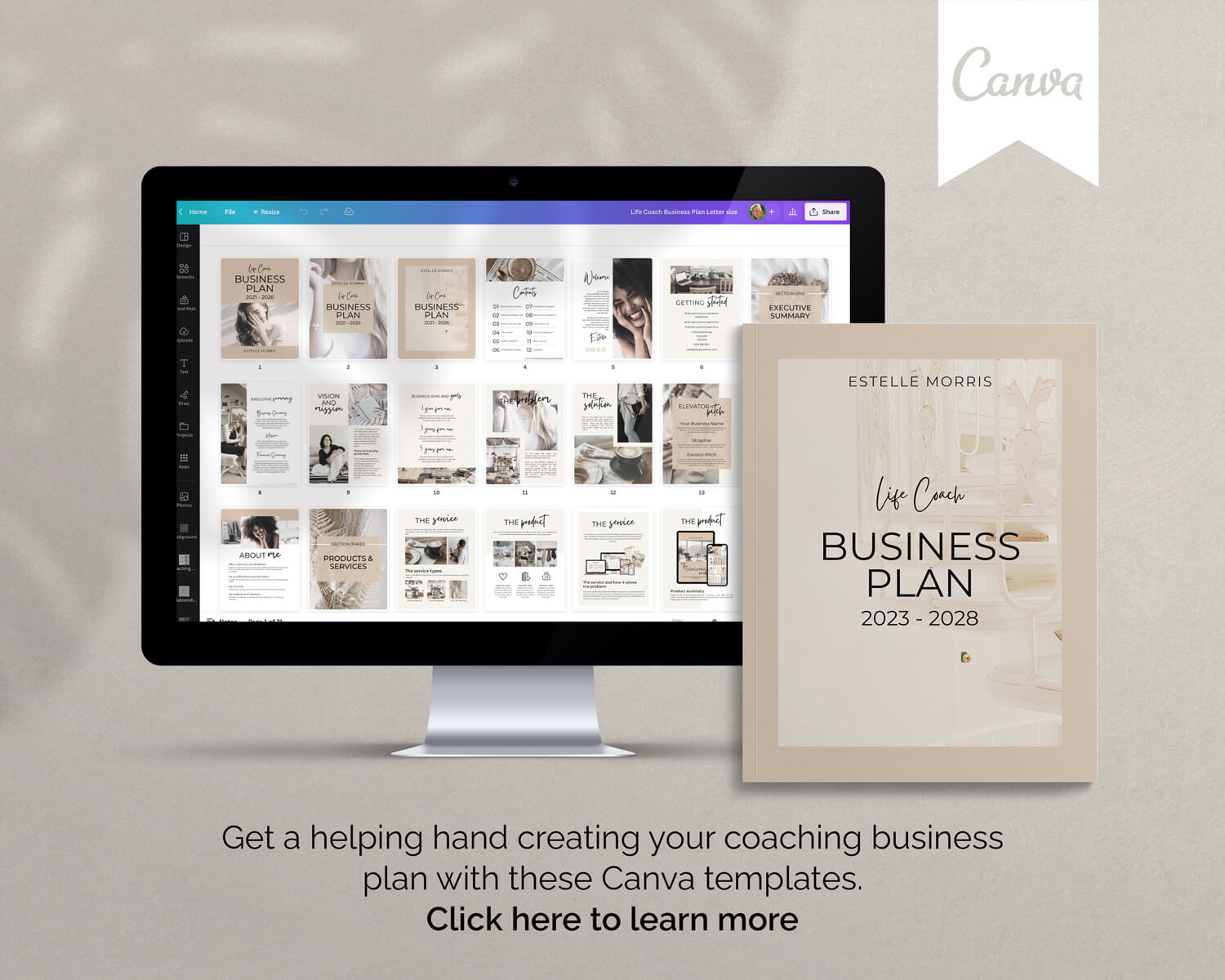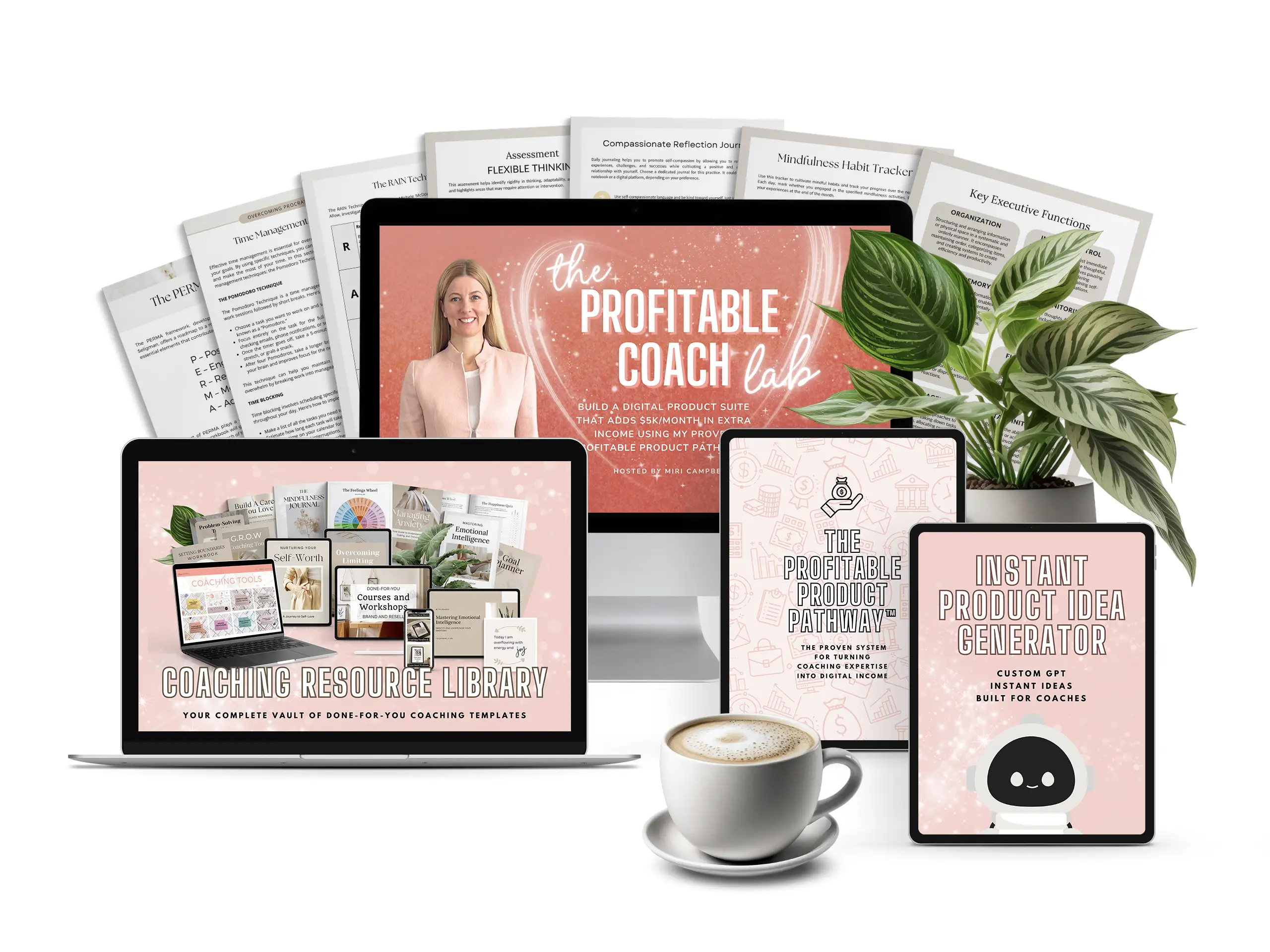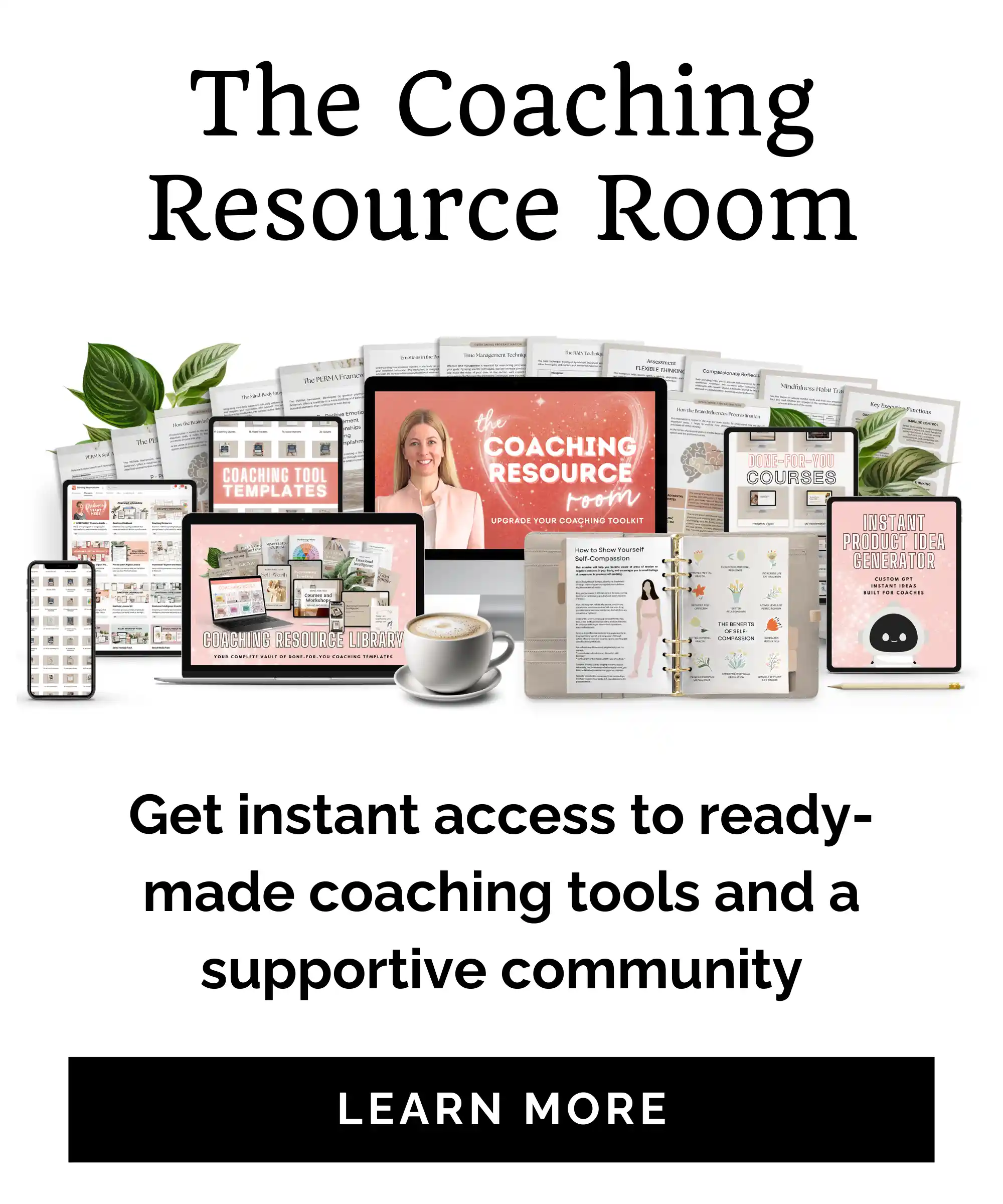How to Write an Awesome Coaching Business Plan

Your Coaching Business Plan
Are you passionate about coaching and ready to turn your expertise into a thriving business? Writing a well-structured business plan is an essential step towards achieving your business goals. A business plan not only acts as a roadmap for your coaching business but also helps you attract your ideal audience, outline strategies, and make informed decisions. In this blog post, we will guide you through the essential components of a strategic business plan for your coaching business, providing valuable insights and practical tips along the way.
1. Getting Started:
Before diving into the details of your business plan, take the time to clarify your goals, target audience, and coaching niche. Research your industry, understand market trends, and identify the unique value you bring to the table. Define your coaching services, determine your competitive advantage, and establish a strong foundation for your business plan.
2. Executive Summary:
The executive summary serves as an overview of your entire business plan, capturing the essence of your coaching business. Include a concise description of your business, its mission, and key objectives. Highlight your target market, revenue potential, and competitive landscape. While it appears at the beginning of your business plan, write the executive summary last to ensure it accurately reflects your plan’s contents.
3. Vision and Mission:
Clearly articulate your coaching business’s vision and mission statements. Your vision should outline your long-term aspirations and the impact you want to make on your clients’ lives. The mission statement should succinctly convey the purpose and values that drive your coaching practice. Ensure that your vision and mission statements align with your coaching niche and resonate with your target audience.
4. Business Aims and Goals:
Define your business aims and objectives to provide a clear direction for your coaching business. Your aims should be specific, measurable, achievable, relevant, and time-bound (SMART). For example, an aim could be to acquire 50 clients within the first year or to expand into a new coaching niche within three years. Setting well-defined goals helps you track progress and stay focused.
5. Problem and Solution:
Identify the problem or pain points your coaching business addresses. Clearly explain the challenges faced by your target audience and how your coaching services offer effective solutions. This section demonstrates your understanding of your clients’ needs and positions your business as a valuable resource for addressing their concerns.
6. Elevator Pitch:
Craft a compelling elevator pitch, a succinct and persuasive description of your coaching business that can be delivered in about 30 seconds. Your elevator pitch should convey your unique value proposition, target audience, and key benefits. It should leave a lasting impression and generate interest in your coaching services.
7. Owner’s Background:
Introduce yourself and provide a brief overview of your professional background, expertise, and relevant credentials. Highlight your achievements and experiences that establish your credibility as a coach. This section builds trust and confidence in your ability to deliver high-quality coaching services.
8. Products and Services:
Describe in detail the coaching programs, workshops, or services you offer. Clearly define the benefits your clients can expect, the methodology you follow, and any unique features that differentiate your coaching approach. Highlight any complementary products or resources that add value to your coaching services.
9: Marketing:
Outline your marketing strategies to attract and retain clients. Identify your target market and create buyer personas to understand their demographics, motivations, and pain points. Develop a comprehensive marketing plan that includes online and offline channels, social media strategies, content creation, networking events, and collaborations. Incorporate both organic and paid marketing tactics to reach a wider audience.
10. Competitor Analysis:
Conduct a thorough analysis of your competitors in the coaching industry. Identify key players, their strengths, weaknesses, and market positioning. Determine what sets your coaching business apart from competitors and articulate your unique selling proposition (USP). Use this information to refine your marketing strategies and differentiate your brand.
11. Operations and Logistics:
Outline the day-to-day operations and logistics of your coaching business. Describe how you will deliver your coaching services, manage client relationships, and handle administrative tasks. Consider the tools, technology, and systems you will use to streamline your operations and provide a seamless coaching experience.
12. Costs and Pricing:
Estimate the costs associated with setting up and running your coaching business. Include expenses such as certifications, marketing, technology, office space (if applicable), website development, and professional memberships. Determine your pricing structure based on market research, competition, and the value you offer. Ensure that your pricing is sustainable and covers your expenses while remaining attractive to your target market.
13. Financial Forecasting:
Develop a financial forecast that projects your coaching business’s revenue, expenses, and profitability over a specific period, typically three to five years. Include a sales forecast, cash flow statement, and balance sheet. Use realistic assumptions and consider potential market fluctuations. This section demonstrates your financial acumen and helps you assess the viability and growth potential of your coaching business.
14. Back-Up Plans:
Prepare contingency plans to address potential challenges or changes in the coaching industry. Identify alternative strategies to mitigate risks and adapt to unforeseen circumstances. This shows investors and stakeholders that you have considered potential obstacles and are prepared to navigate them.
Want Help Writing Your Coaching Business Plan?
Writing a business plan for your coaching business is a vital step in setting yourself up for success. By thoroughly exploring each of the key areas mentioned above, you will have a deeper understanding of your market, clients, and operational requirements.
If you’d like a helping hand with writing your business plan, check out my Business Plan Canva Template.
What are your tips for writing a business plan? Let me know in the comments.
Want a proven system to turn your coaching expertise into digital products that grow your income?
The Profitable Coach Lab
Lifetime Access to Your Complete Coaching Product Suite System
Get everything you need to turn your coaching expertise into a full digital product suite designed to sell and grow your income.
Inside The Profitable Coach Lab, you’ll follow a proven step-by-step system to build your sellable products fast using done-for-you templates.
Come in, follow the steps, and create digital coaching products you can sell again and again.







